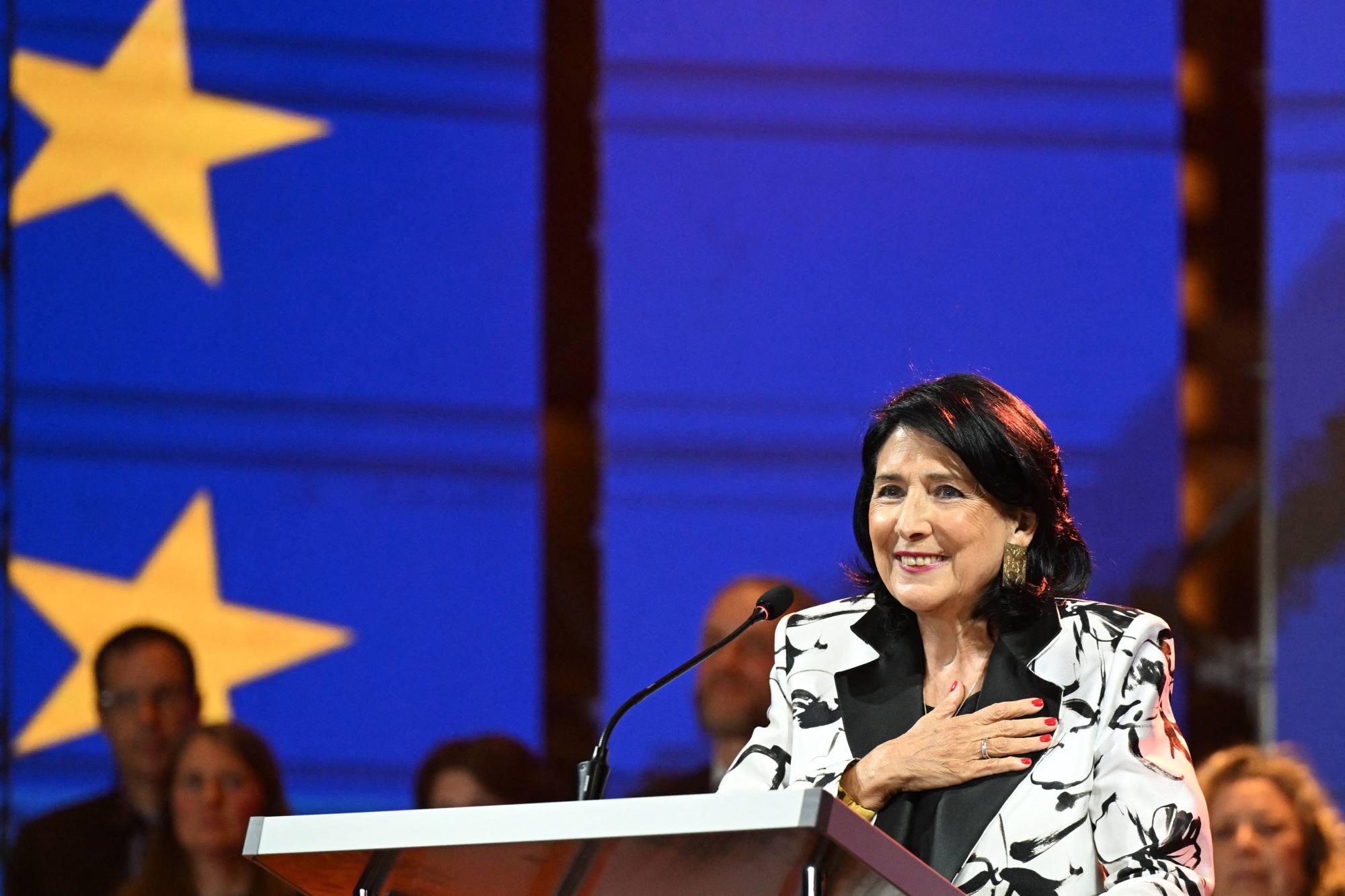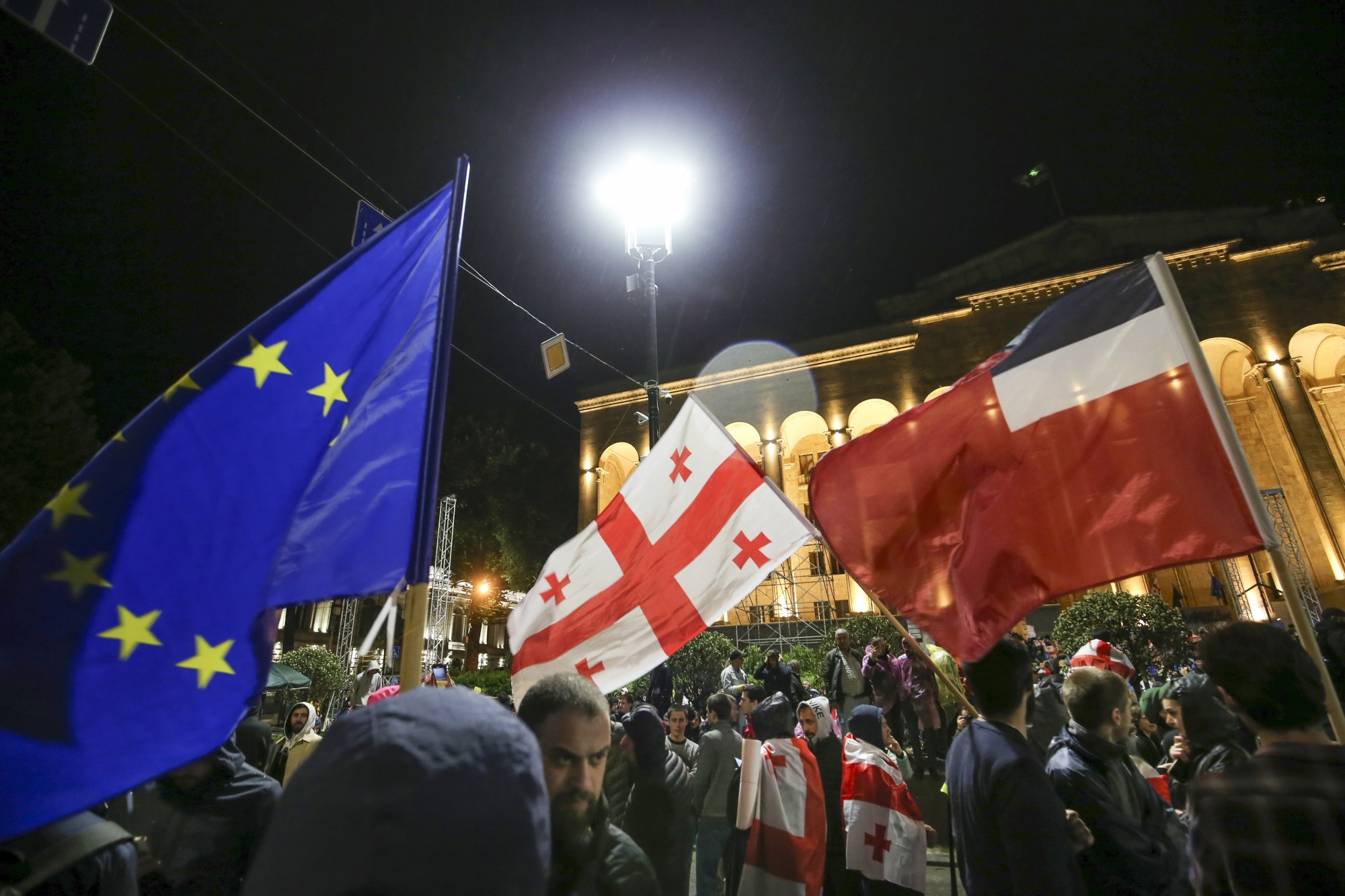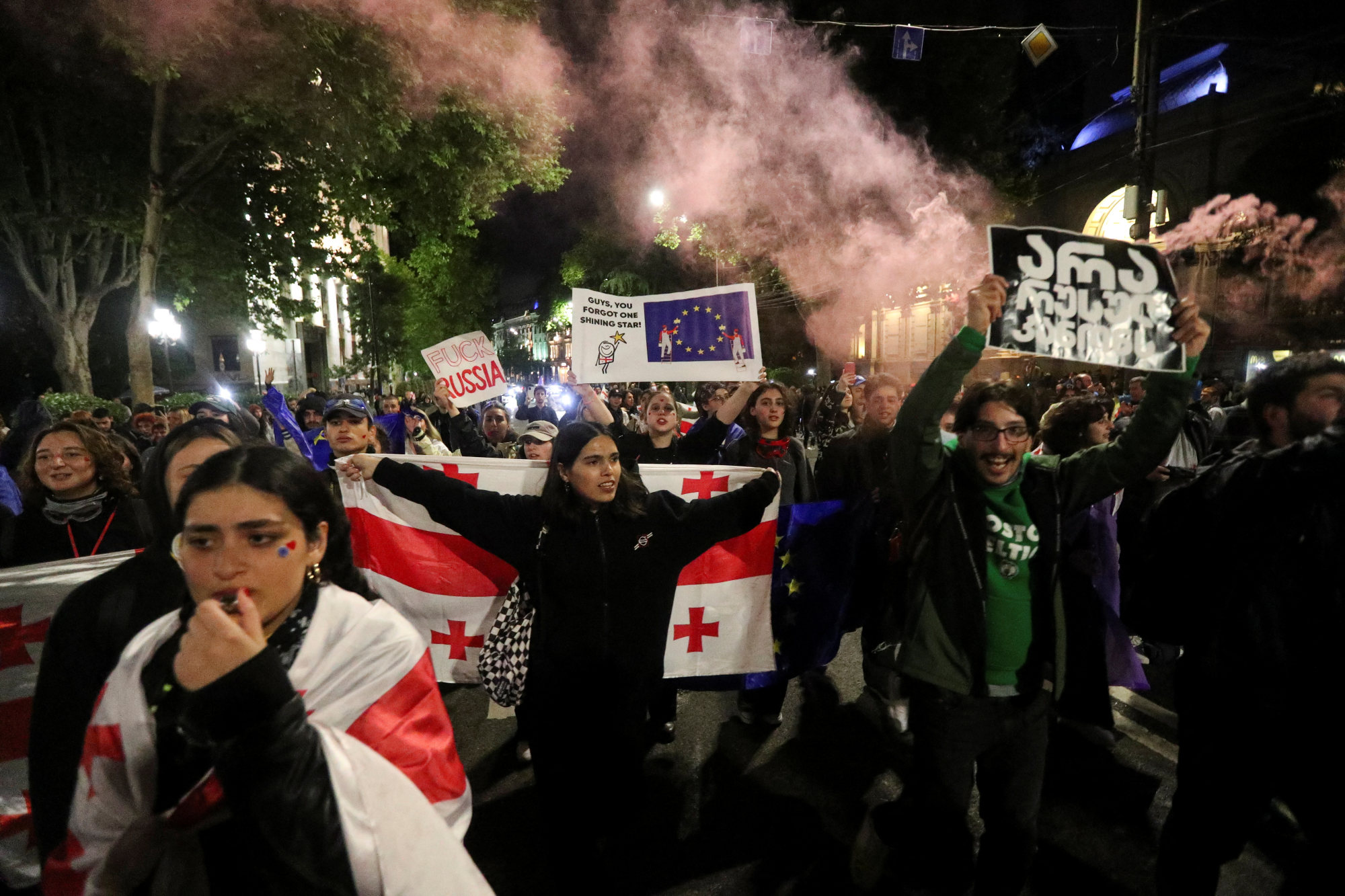Carrying EU and Georgian flags, protesters poured into the main Rustaveli Avenue, hours before parliament was expected debate the bill in a third reading. The ruling Georgian Dream party is intent on passing the bill this week.

Georgia’s pro-EU President Salome Zurabishvili warned protesters to beware of “provocations”, days after some activists reported harassment.
The authorities warned that they would arrest those who try to block parliament and many expected the protest to be dispersed should people stay all night.
But protesters – who for weeks have been led by the youngest Georgians – appeared determined to stop the bill becoming law.
“We, as students, don’t see a future with this Russian law,” said 20-year-old Nadezhda Polyakova, who was born and raised in Georgia but is ethnically Russian.
“We stand with Europe,” she added.
Students from various Tbilisi universities announced a strike, saying they would not go to lectures from Monday.
I am not going anywhere. It’s my 35th day of protesting and I will be here all night long. I am so mad and angry
Georgian Dream, in power for more than a decade, has appeared intent to push through the law despite the protests.
Interior Minister Vakhtang Gomelauri warned that blocking parliament would be punishable by “up to four years in prison” under a law that authorities have so far not been using but will now implement “without any exemption”.
Outside parliament, many said they had no intention of backing down, while hoping for a peaceful night.
“I am not going anywhere. It’s my 35th day of protesting and I will be here all night long,” said student Vakhtang Rukhaia. “I am so mad and angry.”
The face of the protests has been Georgia’s young generation, many protesters either at university or still at school.
“We are not scared. We are Gen Z and we are Georgian,” said 19-year-old Nino, who did not want to give her last name, worried about her mother’s job in the state sector.
In a shock move in early April, Georgian Dream announced they were bringing back the bill a year after it was dropped following a huge backlash.

Since then, the party’s billionaire backer Bidzina Ivanishvili has declared NGOs the enemy within, accusing them of working for foreign governments and plotting a revolution.
Protesters accuse the government of bringing the ex-Soviet country back into Moscow’s orbit, and of lying in promising a future in the EU.
“I feel that we have no choice [but to be here],” said Ana Magradze, a 39-year-old doctor.
She wanted her children to grow up “in a European country” not within Russia’s sphere of influence, she said.
Some of Georgia’s large Russian émigré population have also been mobilised by the protests.
His Ukrainian friend, Sergei, said he did not want Georgia to turn into “another Russia or Belarus”.
President Zurabishvili, at loggerheads with the government, warned protesters to be vigilant.
“I want to address you [the protesters], so that you know … There are some plans that will not really work, but there are some plans to organise provocations and involve you,” she said, without going into details.
“So stay very careful, which does not mean fear,” she added.

On April 30, authorities dispersed a protest using water cannons and tear gas.
Leading activists have in recent days reported being harassed by unknown people, with some having their homes and offices plastered in posters that read “foreign agent”.
Georgian Dream has portrayed the bill as being about “transparency”, arguing that it is merely an administrative issue.
But the NGO sector, the opposition and protesters say the government’s true aims are about control and getting rid of critical voices.
They also say the bill is timed to prepare the ground for an autumn election.

